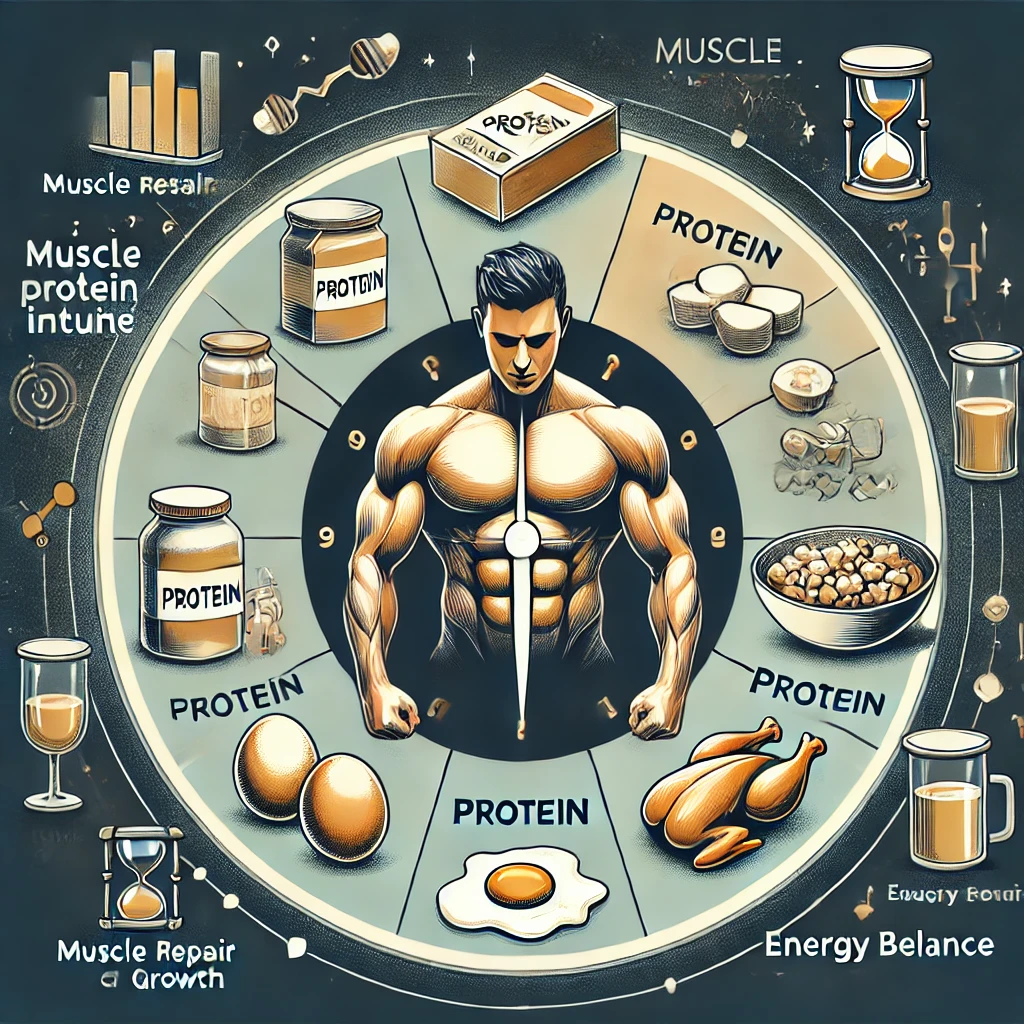
Timing Protein Intake for Muscle Preservation
Protein intake timing plays a crucial role in muscle preservation, particularly as we age.
Consuming protein evenly across meals can enhance muscle protein synthesis and prevent muscle loss.
Older adults benefit from spreading protein intake throughout the day rather than consuming it all at once.
Timing Protein Intake for Muscle Preservation
Introduction
Protein timing plays a crucial role in maintaining and building muscle, especially as we age. Consuming protein at strategic times can enhance muscle protein synthesis, improve recovery, and prevent age-related muscle loss (sarcopenia). This article explores the best times to consume protein for muscle preservation and overall health.
Why Protein Timing Matters
1. Enhances Muscle Protein Synthesis (MPS)
- Distributing protein intake evenly throughout the day optimizes muscle repair and growth.
- Prevents muscle breakdown during periods of fasting (e.g., overnight).
2. Improves Recovery After Exercise
- Consuming protein post-workout helps repair muscle fibers and reduce soreness.
- Pairing protein with carbohydrates replenishes glycogen stores and accelerates recovery.
3. Prevents Muscle Loss During Aging
- Adequate protein intake combats sarcopenia, the natural decline in muscle mass with age.
- Helps maintain strength, mobility, and metabolic function.
Best Times to Consume Protein
1. Morning Protein Intake
- Prevents muscle breakdown after an overnight fast.
- Best sources: Eggs, Greek yogurt, protein smoothies, oats with nuts and seeds.
2. Pre-Workout Protein (30–60 Minutes Before Exercise)
- Provides amino acids for muscle endurance and strength.
- Best sources: Lean meats, cottage cheese, tofu, protein shakes.
3. Post-Workout Protein (Within 30–60 Minutes After Exercise)
- Maximizes muscle repair and recovery.
- Best sources: Whey protein, chicken, fish, legumes, quinoa.
4. Evening Protein Intake (Before Bed)
- Casein protein (found in dairy) is slow-digesting, preventing overnight muscle breakdown.
- Best sources: Cottage cheese, Greek yogurt, casein protein shake, nuts.
How Much Protein is Optimal?
- General Guidelines: 1.2–2.0g of protein per kg of body weight.
- Athletes & Older Adults: Closer to 1.6–2.2g/kg for optimal muscle retention.
- Per Meal Target: 25–30g per meal for best absorption and muscle synthesis.
Protein Distribution for Maximum Benefits
- Breakfast: 25–30g protein (e.g., eggs, Greek yogurt, protein smoothie).
- Lunch: 25–30g protein (e.g., grilled chicken, tofu, legumes, quinoa).
- Dinner: 25–30g protein (e.g., fish, lean beef, tempeh, cottage cheese).
- Pre-Bed Snack: 20–25g slow-digesting protein (e.g., casein shake, nuts, dairy).
Conclusion
Timing protein intake strategically can enhance muscle preservation, improve recovery, and prevent age-related muscle loss. Distributing protein evenly across meals, prioritizing post-workout intake, and including slow-digesting proteins before bed can maximize muscle health and longevity.
Unlock Your Potential with Biomarker, Nutrition and Activity Tracking
Understanding your biomarkers is key to optimizing your health. NOVA's clinics, team and AI-driven platform seamlessly ingest and analyze this data to provide personalized coaching tailored to your unique performance goals.
FAQs
Consuming protein evenly across three meals (25-30g per meal) maximizes muscle protein synthesis.
Older adults should aim for at least 1.2-2.0 grams of protein per kilogram of body weight daily.
Still have questions?
Book a consult to meet with one of our health experts
Launch Your Health Journey Today
Unlock your potential with our coaching and AI platform that personalizes your health goals and provides daily coaching. Start your journey towards a healthier you and experience the difference.
